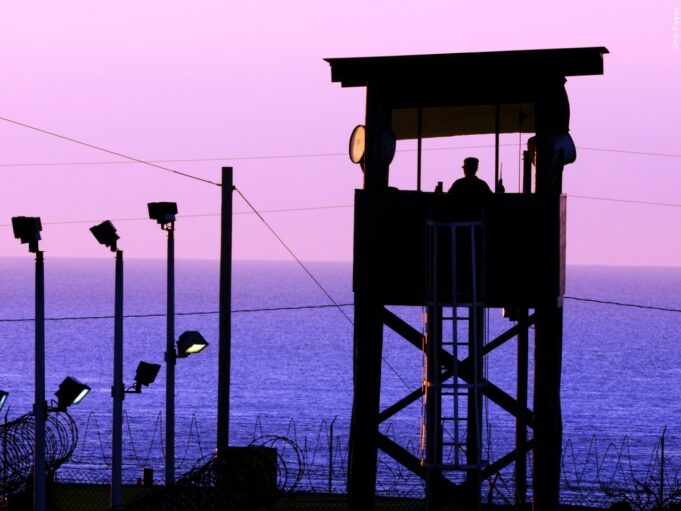Two former CIA contractors cannot be questioned in an investigation into the treatment of a suspected al-Qaeda figure who was repeatedly subjected to a type of torture called waterboarding, the U.S. Supreme Court has ruled.
The justices ruled 6-3 on March 3, that due to national security concerns CIA contractors James Elmer Mitchell and John Bruce Jessen cannot be questioned in a Polish probe into the treatment of Abu Zubaydah.
Zubaydah, 50, is one of 39 remaining detainees at the U.S. naval base at Guantanamo Bay, Cuba.
The contractors cannot be subpoenaed under a U.S. law that allows federal courts to enforce a request for testimony or other evidence for a foreign legal proceeding, the justices said.
The court found that the government could assert what is known as the “state-secrets privilege” to preclude the contractors from being questioned in the investigation about their role in interrogating Zubaydah because it would put at risk U.S. national security.
Poland is thought to be the location of a “black site” where the CIA employed harsh interrogation techniques against him.
Zubaydah lost an eye and underwent waterboarding— a form of simulated drowning—83 times in a single month while in CIA custody, according to U.S. government documents.
The contractors’ testimony “would be tantamount to a disclosure from the CIA itself,” Justice Stephen Breyer wrote in the ruling.
“For these reasons, we conclude that in this case the state secrets privilege applies to the existence (or nonexistence) of a CIA facility in Poland,” Breyer added.
Zubaydah, a Palestinian, was captured in 2002 in Pakistan. He has been held by the U.S. since then without charges. He has spent over 15 years detained at Guantanamo.
The Guantanamo prison, commonly known as “Gitmo,” became synonymous with prisoner abuse by the United States in the early years of the so-called war on terror, gaining global notoriety for the widespread use of torture and other violations of human rights that took place within its walls.
The facility, which was supposed to be a temporary detention center and never meant to be permanent, was chosen because of its ambiguous legal status. It was under full control of the U.S. military and relatively close to the mainland but beyond the reach of American courts, thus allowing detainees to be held indefinitely outside of normal laws or judicial oversight. (PressTV.ir)













